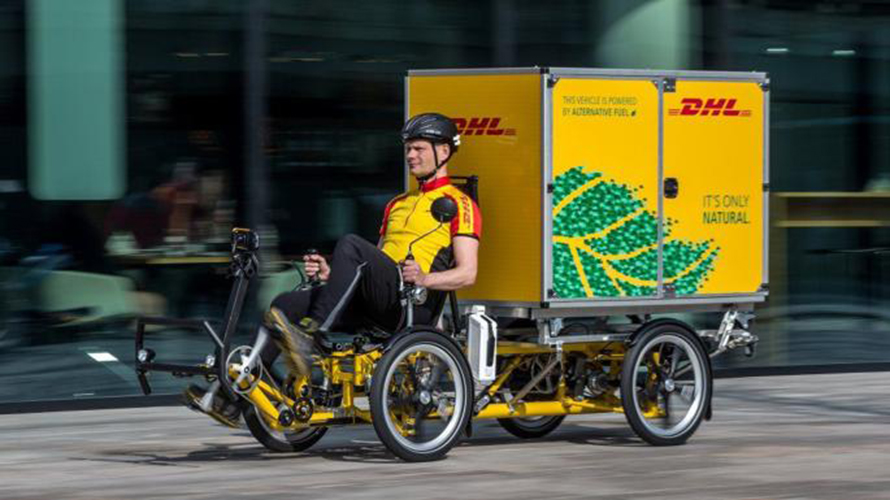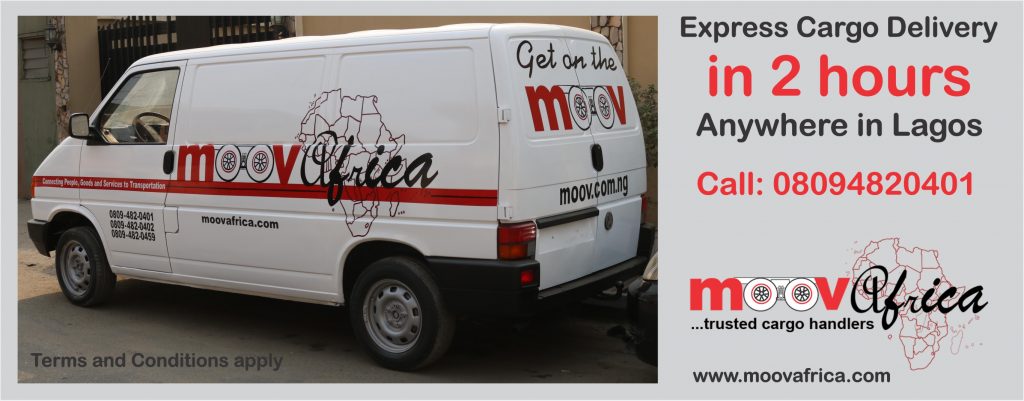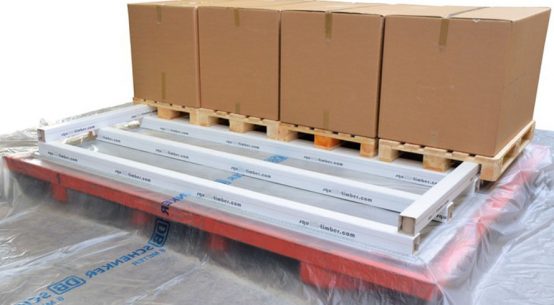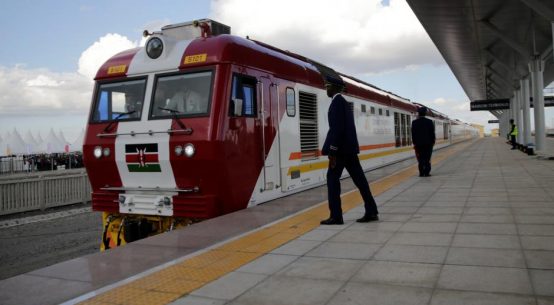
The electric tricycles will resemble those used by private delivery firms such as DHL in countries including Germany
- Electric trikes get stamp of approval from An Post
- Image of traditional postman gets the sack as mail goes environmentally friendly with new fleet
The quintessential image of a postie pedalling a bike with a mailbag over their shoulder is getting a modern makeover as An Post workers take to electric tricycles.
The postal service operator is buying a fleet of motor-generated cargo three-wheelers in an attempt to become more environmentally sustainable.
An Post has road-tested two electric cargo trikes and is buying eight more. The central part of the vehicle looks like an adult-sized tricycle, but it has an electric motor and a large trailer to the rear.
Electric bikes and trikes are used by national postal services in European countries including Switzerland and Croatia. An Post’s vehicles are likely to resemble those deployed by private delivery services such as UPS and, in Germany, DHL.
An Post will deploy 10 electric cargo trikes and 10 electric vans in the coming months, to be trialled in Dublin city centre. The trikes will make deliveries that were previously carried out by vans and trucks.
“Obviously we’re conscious of the move away from fossil fuels and the need for us to operate sustainably,” said An Post. “We’re going to trial these vehicles in a working environment. We currently have two, which we have road-tested. The full pilot will be when all 10 are here and ready and they’re matched to the 10 electric vans.”
The postal service added: “A large part of our business now is parcels and packets. They can hold quite a large amount of parcels and packets, so they’re very suitable, particularly for city routes and city areas. The key issue with them is capacity and obviously manoeuvrability and the fact they are sustainable.
“They’ve a van-like capacity at the back. It’s not like your postman’s bag; it’s actually a big container that will take packets and parcels in a city area.”
An Post operates 2,600 vans and trucks alongside 1,600 bicycles. It handles 2.5m mail items a day, serving 2.2m business and residential addresses.
The operator envisages replacing a cohort of its motor vehicles with the electric trikes, which make minimal to no noise and do not produce fumes. The operator declined to give the budget for purchasing the electric trikes and vans, citing commercial sensitivity.
Deutsche Post DHL Group in Germany operates 10,500 ebikes and etrikes. The company is replacing its full delivery fleet with electric vehicles, which are considered economically and environmentally favourable.
Frank Appel, chief executive of Deutsche Post DHL Group, said an emissions-free future was a possibility and “emobility” was a promising start. Problems such as cost and battery capacity made the electric vehicles difficult to deploy in more expansive, rural areas, he added. However, the company has set a target of reducing its “logistics-related emissions” to zero by 2050.

The Irish government aims to have 500,000 electric vehicles on the roads by 2030, but uptake has been slow and they currently account for just 0.5% of all cars. Ireland’s figures are behind those of other European nations, even though the number of electric vehicle sales has increased in this country, from 392 in 2016 to 622 last year.
The Sustainable Energy Authority of Ireland is attempting to increase the number of electric vehicle users and offers financial incentives to companies and private buyers.
Grants of between €2,000 and €3,800 are available for electric vehicles bought by commercial and public companies, while the grant for private purchases is from €2,000 to €5,000.
- With reports from The Times








